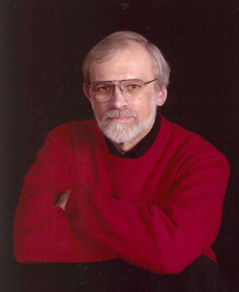Comments to AAATA Board 2019-09-19
Greta Thunberg...have you seen her on the news? Only 16 years old, and she has galvanized youth around the world into striking for climate action tomorrow. She has met with top US lawmakers and chided them firmly about their inaction on a matter that will critically impact people her age for the rest of their lives.I'm happy that AAATA's Board has already acted. You have a strong policy statement about sustainability in ENDS:
1.2. The Area's natural environment is enhanced.
1.2.1. The Area's overall transportation system minimizes energy use and pollution.
In March 2019, the CEO's Interpretation and Rationale stated:
"I interpret this policy to mean that the AAATA should be working to reduce the prevalence of automobile trips with only a single occupant (the driver) in favor of any alternative transportation option that is more energy efficient and creates less pollution, including reducing demand for travel entirely. This is best measured by overall mode share trends."
So far, so good. But then the CEO's interpretation continues:
"We can assume that most modes produce less GHG emissions per passenger trip than single-occupant vehicles."
As Greta Thunberg said to a House Joint Committe yesterday, September 18, "Look at the science!"
The CEO's assumption can easily be fact-checked with reference to sources like the Oak Ridge National Laboratory's Transportation Energy Data Book. By their calculations, single-occupant vehicles (or SOVs) are near the bottom of fuel economy (and hence pollution). With the most efficient mode calculated to be intercity passenger rail at 57 miles per gallon-equivalent, SOV's average is about 38 MPG. But there is one travel mode less efficient on average: TRANSIT BUSES, at 30 MPG.
 Why? Quoting the 2018 Transportation Energy Data Book: "Transit buses are not very efficient at their current ridership rates, where, on average, a given bus is less than 25% full."
Why? Quoting the 2018 Transportation Energy Data Book: "Transit buses are not very efficient at their current ridership rates, where, on average, a given bus is less than 25% full."AAATA can easily calculate the overall fuel efficiency. There are precise records for miles buses traveled, passengers carried, and fuel used. The calculation can even be very closely estimated for each route.
Having mandated Policy End 1.2.1, this Board has both a right and an obligation to the community, to expect this kind of measure from the staff, and to expect concrete steps taken to improve, and keep improving, both ridership and fuel efficiency on our vehicles. Not just within the next 5-10 years. Now.
Greta is waiting. My grandchildren are waiting. They can't do anything about ridership and pollution from inefficient transit buses. And they're telling us they can't wait that long. But you, the AAATA Board, CAN do something about it. Please don't keep our kids and grandkids waiting any longer. Use the science.
To learn more:
-
Oak Ridge National Laboratory Table 2.14 of the Transportation Energy Data Book 36B. 2018.




